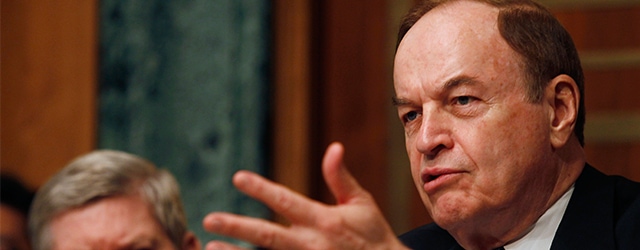United States | Newsmakers

After the Republican victory in the 2014 US midterm elections and an eight-year hiatus, Richard Shelby, a senior senator from Alabama, has taken over his old post as chairman of the Senate Committee on Banking, Housing and Urban Affairs, which he held from 2003 to 2007. Since then, a lot has changed in the American financial system, whose collapse in 2008 triggered a global financial crisis, and which is now contending with the more stringent regulations implemented via the Dodd-Frank financial reforms. There is much about the new framework that Shelby doesn’t like. However, because of internal party rules, the Alabama senator has only two more years at the helm of the Banking Committee, enough time to make modest, but perhaps not transformative, changes.
“Shelby is experienced,” says Sarah Binder, senior fellow in governance studies at the Brookings Institution and professor of political science at George Washington University in Washington, DC. “He is well situated, has the right staff and a clear vision of what he thinks the role of government should be, so he will hit the ground running.” The relationship between Congress and the Federal Reserve is likely to become more contentious with Shelby as chairman. Long-running libertarian proposals to have the American central bank audited by Congress might resurface under his leadership, though this is only likely to appeal to Republicans. But, says Binder, Shelby could also work with Democrats on a smaller-step approach, starting with the bill recently introduced by Democratic senator of Rhode Island Jack Reed to have the president of the Federal Reserve Bank of New York undergo a regular confirmation process in the Senate.
Overall, however, Shelby’s focus will be on Dodd-Frank. “He’d prefer repeal but knows there aren’t the votes for that, so modifications will be the avenue,” says Mark Calabria, director of financial regulation studies at the Cato Institute in Washington, DC, and a former Shelby staffer. “Focus will be on the Financial Stability Oversight Council, the resolution process and oversight at the Consumer Financial Protection Bureau. Reform of government-sponsored enterprises [like Fannie Mae and Freddie Mac] will also be on the agenda, as will reform of the Ex-Im bank.”



